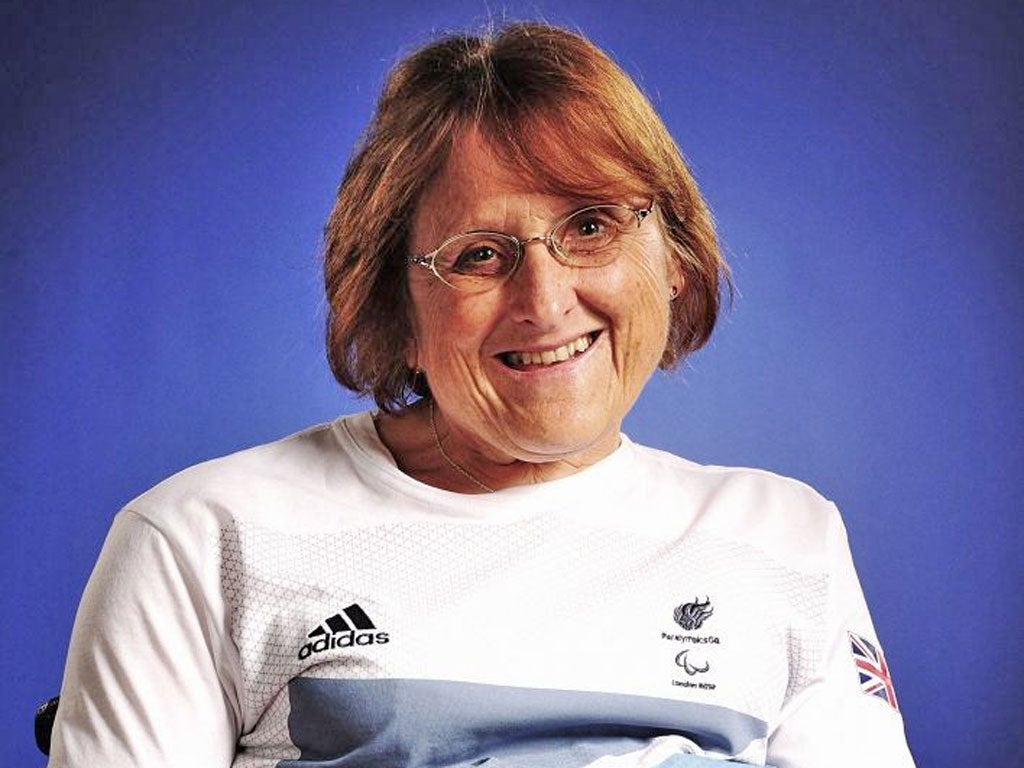Shelagh Fogarty: Some mothers do have 'em – nerves that is
Alastair Hignell said that he was overwhelmed by the scale and variety

Your support helps us to tell the story
This election is still a dead heat, according to most polls. In a fight with such wafer-thin margins, we need reporters on the ground talking to the people Trump and Harris are courting. Your support allows us to keep sending journalists to the story.
The Independent is trusted by 27 million Americans from across the entire political spectrum every month. Unlike many other quality news outlets, we choose not to lock you out of our reporting and analysis with paywalls. But quality journalism must still be paid for.
Help us keep bring these critical stories to light. Your support makes all the difference.
So Baroness Tanni Grey-Thompson can fly as well as race. Her descent from the heavens in a gold wheelchair at the Opening Ceremony for the London 2012 Paralympic Games was my "Good evening, Mr Bond" moment. The sheer glee on her face acted as a kind of start button for the Games as far as I'm concerned.
On the first full day of the Paralympics she joined me on the radio for two hours outside the Olympic Park, surrounded by the thousands of people who had come to see some top-class sport. They weren't disappointed. Two world records set on the first morning of action – Jonathan Fox in the pool and Sarah Storey, a former swimmer turned cyclist, in the velodrome. Storey went on to add a gold medal around her neck to her record.
No escape from the cruelty of sport, Paralympian or not. Great Britain's Di Coates (pictured above) did not fare well in the shooting and Ben Quilter fell below his usual world-beating standard in the judo.
Judo is the only martial art in the Paralympics and our record is good so hopes were high. As it is a sport for visually impaired athletes at the Paralympics, the only real difference between this and the Olympic version is that the two judokas start by gripping each other in order to get their bearings.
On air, on Radio 5 Live, with Tanni, we spoke to Ben's brother Lee and to the mother of a wheelchair basketball player. Not surprisingly, it turns out mothers get nervous but brothers, well this particular brother, was there to talk to his athlete sibling about anything but judo! Either way, family support is at the heart of any sporting success at this level. Every Paralympian will tell you of a committed parent, a generous friend, a cajoling teacher – people who see something in them and want to help it fly.
We spoke to Lee Pearson, who is snapping at Tanni's heels when it comes to the number of gold medals he has won. Nine in three Games for him in dressage to date and no reason to believe he cannot add to that.
One former team-mate, Ricky Balshaw, told me about Pearson's extraordinary mental strength. Pearson himself just wanted to tell us how much his horse, Gentleman, gets on his nerves. Whatever the chemistry between man and beast, let's hope it works.
Alastair Hignell – former England rugby player and first-class cricketer – joined us too. He knows better than most what the body can do, having excelled at two such different sports before a diagnosis of MS more than a decade ago changed his life. A first-timer at the Paralympics, he said he was overwhelmed by the scale and variety of the event. He is hopeful that London 2012 can change attitudes to disability. He has said in the past that his experience has shown him more about the kindness of people than the cruelty but Grey-Thompson reminds us that disability hate crime is still all too real in the UK.
I can't say how far or deep the Paralympic Games' impact will go when it comes to changing hearts and minds, but anyone who comes here has to be struck by the obvious difference in the very nature of the gathering to most others they'll have experienced before. Disabled people are not only more visible, spectators included, they are in a sense the stars of the show. The thousands of non-disabled schoolchildren here will rarely see so many examples of "different to me" in one place.
It's inevitable, surely, that that will inform how they behave now and in the future, towards a disabled person. But it's only once every four years. Does the door close in our minds after that, I wonder. I hope not.
Join our commenting forum
Join thought-provoking conversations, follow other Independent readers and see their replies
Comments